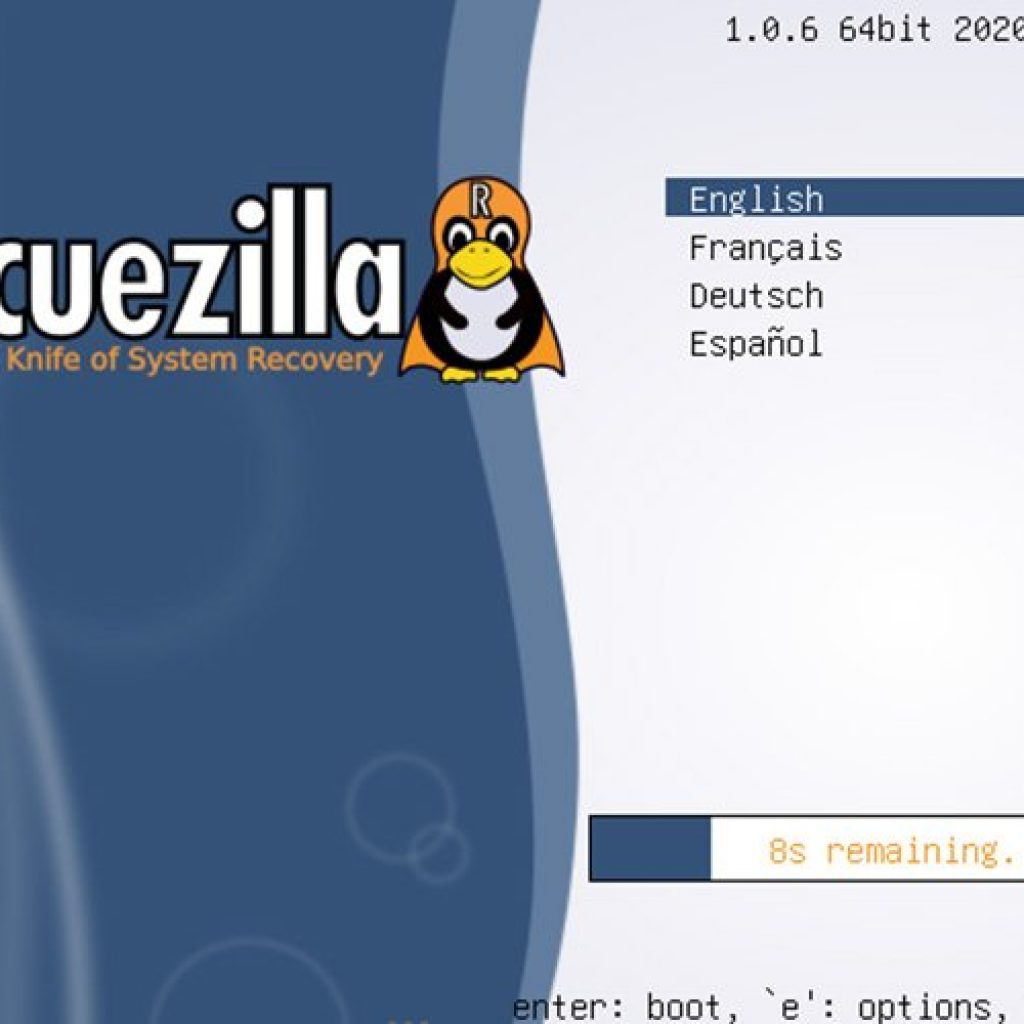Rescuezilla team announced the release of the 1.0.6 version of the Ubuntu 20.04 based distribution, Rescuezilla.
Rescuezilla announced that 64-bit and 32-bit versions of Rescuezilla 1.0.6 is now ready to download. According to the announcement, Rescuezilla is currently only suitable for backup and restoration of whole hard drives, however, it’s not yet well-suited for restoring single partitions individually. The 64-bit version of Rescuezilla is based on Ubuntu 20.04 and Rescuezilla v1.0.6 is based on Ubuntu 18.04 32-bit like all prior Rescuezilla releases. Rescuezilla also stated that due to slower shutdown and reboot times for 64-bit version, users with machines with less than 16GB RAM may prefer to use Rescuezilla v1.0.6 32-bit version.
Version 1.0.6
- Added 64-bit version (this fixes the slow transfer rates issue on systems with >16GB RAM)
- Added support for booting on EFI-only machines (including with Secure Boot enabled) [64-bit only]
- Switched ISOLINUX bootloader to GRUB affecting all boot approaches: BIOS, EFI and CD-ROM
- Upgraded OS base to Ubuntu 20.04 LTS (Focal) from 18.04 LTS (Bionic) [64-bit only]
- Ubuntu 20.04 has dropped 32-bit, so Rescuezilla 32-bit remains based on Ubuntu 18.04
- Fixed issue preventing backup/restore of hard drives smaller than typically ~40 megabytes
- Fixed broken GRUB backup affecting some 1MiB-aligned filesystems on MBR-formatted disks, by copying all of “post-MBR gap” between MBR and first partition, not just typical 32KiB.
- Added GRUB packages to assist users who want to use Rescuezilla to perform a GRUB repair
- Fixed a “stuck at 0%” issue when paths contain certain special characters
- Removed false menu items such as “(Windows Boot Manager, )” by correctly merging items
- Removed restrictions which prevented users entering special characters in filenames and paths
- Fixed use of silver “Bluebird” theme, replacing the dull grey default used by v1.0.5/v1.0.5.1
- Increased logging of internal commands for improved ability to track down reported bugs
- Writes the log file into destination directory (so it always persists between reboots)
- Improved the error message when a mount (of CIFS/SMB network share) fails
- Adds boot menu item to enter “BIOS” firmware setup [EFI-boot only]
- Replaced Redo Backup logo with new Rescuezilla logo (with “Tux” pengiun mascot)
- Switched ISO naming to eg, “rescuezilla-1.0.6-32bit.iso” from “redobackup-livecd-1.0.6.iso”
- Installs Rescuezilla frontend as a deb package, which increases flexibility of installation
- Moved scripts from tertiary File Hierarchy Standard (eg, /usr/local/sbin/rescuezilla) to secondary FHS (eg, /usr/sbin/rescuezilla) as the rationale that scripts were “developed by the system administrator of the system it is deployed on” is no longer valid when installing as a deb package
- Minimized divergence of Rescuezilla 32-bit and 64-bit package environment: (see below)
- Replaced Chromium Web Browser with Firefox to avoid Ubuntu 20.04 snap-based packaging as
- snaps cannot yet be installed in chroot-based environments (which the Rescuezilla build uses)
- Replaced unsupported ‘leafpad’ text editor with similarly lightweight ‘mousepad’ text editor, as ‘leafpad’ not available on Ubuntu 20.04
- Removed ‘maximus’ auto-maximize package (as behavior replaced by OpenBox config in v1.0.5)
